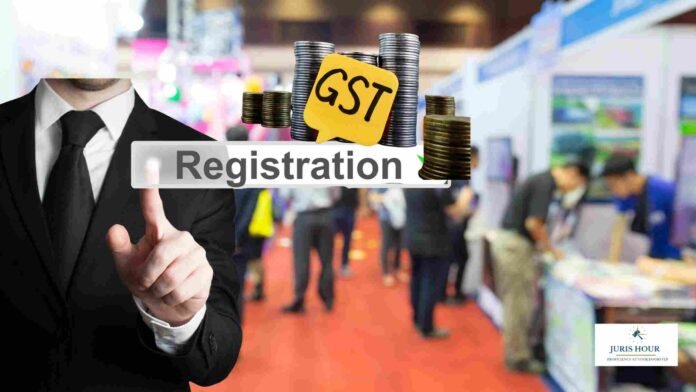The Central Board of Indirect Taxes and Customs (CBIC) has issued a key clarification on the proof of address required for Goods and Services Tax (GST) registration by individuals or businesses participating in exhibitions or trade fairs.
According to Circular No. 71/45/2018-GST dated 26th October 2018, an allotment letter or consent letter issued by the exhibition organiser will be accepted as valid proof of the place of business for the purpose of GST registration.
CBIC Clarifies Proof of Address Requirement
The CBIC circular addresses a long-standing practical issue faced by exhibitors who temporarily operate from exhibition premises but lack conventional documents such as rent agreements or utility bills. The clarification states that for normal GST registration, the exhibitor can upload the allotment letter or consent letter issued by the organiser as valid proof of address.
Such letters, when submitted along with the registration application (Form GST REG-01), will be treated as sufficient evidence of the place of business. There is no requirement to provide a rental agreement or ownership document of the exhibition venue.
Distinction Between Normal and Casual Registration
The circular distinguishes between two categories of exhibitors — those seeking normal registration and those qualifying as Casual Taxable Persons (CTPs) under Section 27 of the CGST Act.
A CTP is a person who occasionally undertakes transactions involving the supply of goods or services in a taxable territory where he does not have a fixed place of business. CTP registration is valid for 90 days, extendable once for another 90 days, thereby allowing a maximum of 180 days.
However, if an exhibition or event extends beyond 180 days, or if a business regularly participates in exhibitions across multiple states, it must obtain normal registration instead of CTP registration. In such cases, the allotment or consent letter from the organiser will be treated as valid proof of business premises, and the applicant will not be required to make an advance deposit of estimated tax liability, which is otherwise mandatory for CTPs.
What the Allotment or Consent Letter Should Contain
To be accepted as valid proof of address, the allotment or consent letter should contain essential details to establish authenticity and business linkage. It should be printed on the organiser’s official letterhead and include:
- The name of the exhibitor or business entity.
- The stall number or booth location.
- The venue name and complete address.
- The dates and duration of the exhibition.
- The signature, seal, and designation of the authorised signatory of the organiser.
- A clear statement granting permission to use the premises for business during the event.
While the CBIC has not prescribed a standard format, ensuring these particulars reduces the likelihood of queries during registration verification.
Simplifying Compliance for Exhibitors and MSMEs
The clarification substantially eases the registration process for short-term exhibitors, small traders, startups, and event-based entrepreneurs who previously struggled to produce traditional address proofs for temporary business locations. It also reinforces the government’s focus on improving the “Ease of Doing Business” in India, particularly within the MSME and trade fair sectors.
By recognising the allotment or consent letter as valid proof, the CBIC has made it easier for businesses to comply with GST registration requirements without unnecessary administrative hurdles.
Legal Basis and References
The clarification is grounded in the following legal provisions:
- Circular No. 71/45/2018-GST, dated 26 October 2018, issued by the CBIC.
- Section 27 of the CGST Act, 2017, which governs the registration of Casual Taxable Persons.
- Rule 8 of the CGST Rules, 2017, outlining the procedure for GST registration.
Summary of the Clarification
| Scenario | Type of Registration | Proof of Address Required | Advance Tax Deposit |
| Short-term exhibition (up to 180 days) | Casual Taxable Person (CTP) | Allotment/consent letter | Required |
| Long-term exhibition (beyond 180 days) | Normal Registration | Allotment/consent letter | Not required |
Conclusion
When a person participates in an exhibition and applies for GST registration, the allotment or consent letter from the organiser serves as a valid and acceptable proof of the place of business. The CBIC’s clarification through Circular No. 71/45/2018-GST provides much-needed procedural certainty and facilitates smoother compliance for exhibitors, startups, and event-based traders across India.
Read More: Draft Assessment Invalid When No Transfer Pricing Variation Is Made: Bombay High Court

